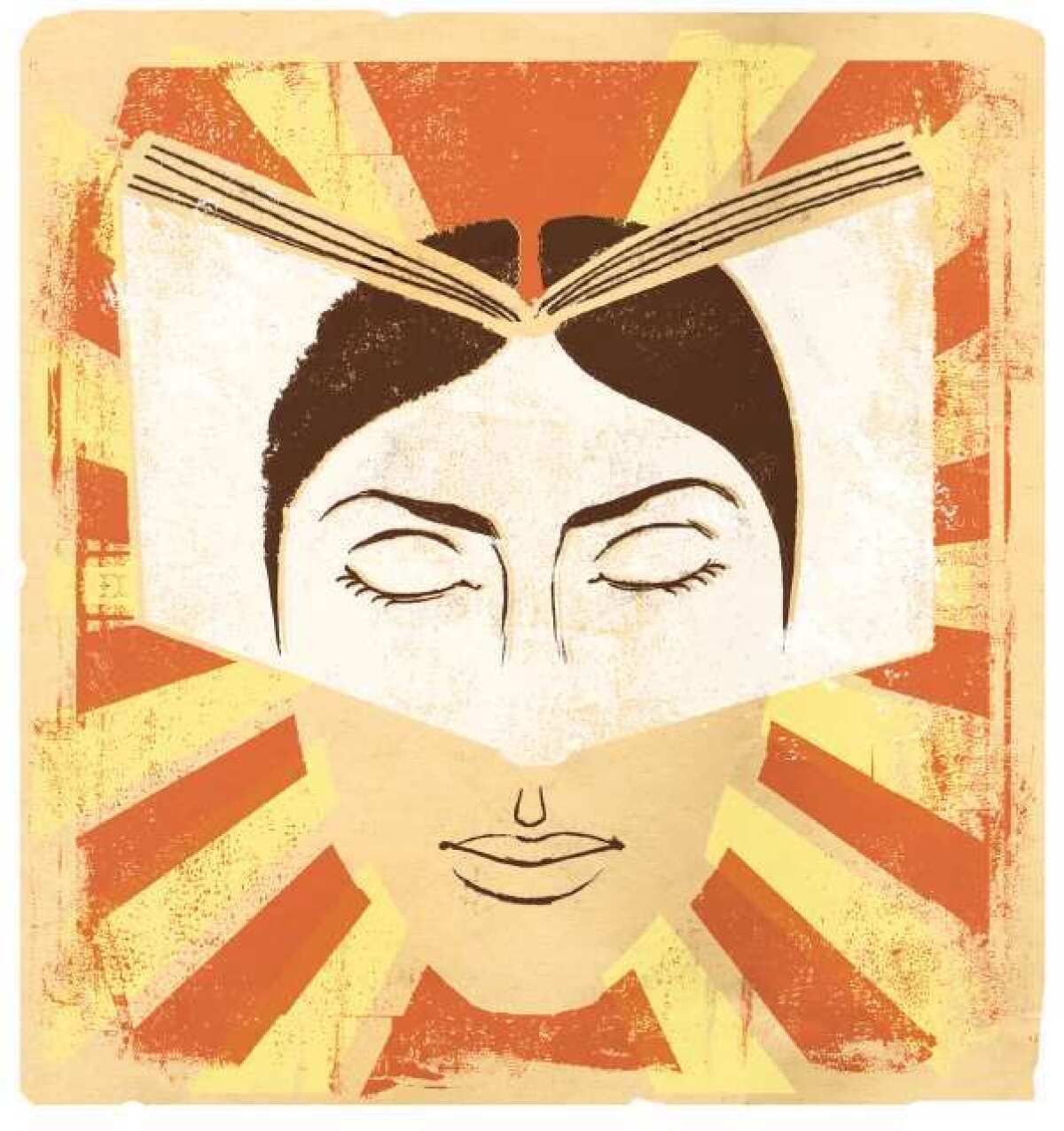Books provide solace and companionship

- Share via
I’m in an old farmhouse on a high, windy prairie in Idaho. There’s snow on the ground: It’s 6 below zero this morning, and the plumbing is frozen again. Coincidentally, I just finished rereading “Alone” by Adm. Richard Byrd, an account of the brutally difficult months he spent in 1935 living alone in a shack buried in the ice in Antarctica, gathering meteorological data in the blackness of a polar winter, where daily temperatures reached an average of 60 below. Byrd almost died, not from the cold but from the noxious fumes from a poorly ventilated stove.
I first read “Alone” as a young teen. There were no books in the house where I grew up, except religious books and a prim row of perfectly matched volumes of Readers Digest Condensed Books -- kept, I suppose, for their sheer good looks since I never saw anyone reading them. Somehow, I discovered “Alone” in the local library: It was the first book I came to on my own, and it launched me into a life of reading, which, in turn, launched me into a life of writing.
“Alone” is the über-memoir for me, a book Byrd said he was hesitant to write since suffering had bulked so large in his experiences that he was fearful of making “an unseemly show” of his feelings. Unseemly shows are, of course, now all the rage, not just in memoirs but on big and little screens, from monstrous TVs to tiny cellphones. There’s no emotional damage too great, no bad behavior too embarrassing, no childhood too deprived for public airing, the more unseemly the better.
“Delight at the way everything is,” William Maxwell wrote to Sylvia Townsend Warner in one of the many letters they exchanged over the 40 years of their friendship. These letters are collected in “The Element of Lavishness,” another book I’m reading this season. As we slouch cautiously toward the last year of the first decade of the new millennium, I try to take Maxwell’s advice, but I find myself beset by undelights, a few of which, in a burst of Scroogish disgruntlement, I list here:
I do not delight that the publishing industry is, as one agent put it to me recently, in a “free fall.” A chilling term when you think about it.
I do not delight in the demise of the small bookstore, or the rise of the mega-store, more barn than noble.
I do not delight in the death of the letter or the banality of most e-mail exchanges, or the sad realization we’re not likely to experience future collections such as “The Element of Lavishness,” or “The Letters of Raymond Chandler,” or ________ (fill in the blank with your favorite epistolary tome).
I do not delight in the Kindle, a device somewhere between a flattened mini-TV and the magic writing pads of my youth, where the written word could be made to disappear with the flick of the wrist, now the click of a button.
I do not delight in the mini-me memoir, the misery memoir or the addiction and abuse memoir, which has overtaken the novel as the genre of choice among many readers and publishers.
So what’s left? What do I delight in?
I delight in the knowledge that in the 1940s all of William Faulkner’s novels were out of print and now he is read again and beloved: There is a God called Reversal of Fortune.
I delight in the words of my first editor, Gerald Howard, who recently received the Maxwell E. Perkins Award in recognition of his fiction editing and in his acceptance remarks said, “What keeps us going is the necessity to make some larger sense of the lives we are leading and in that ongoing and inescapable and never-to-be completed project, our fiction writers are indispensable and carry the heaviest burden.”
I delight in this burden -- the novel. I delight in its strength to lead us forward in the never-ending quest.
I delight in all the books on my shelves, all genres, my steadiest of companions. In one glance, I see Updike next to later Auden, Neruda’s “Memories” beside Nabokov’s “Speak, Memory,” Woolf’s “To the Lighthouse,” Nicholson Baker’s “The Size of Thoughts,” Naipaul’s “Half a Life,” Paz’s “In Light of India” and at the end, Alberto Manguel’s “The Library at Night.”
Finally, I delight in my copy of “Alone,” a first edition, published in 1938, with beautiful blue-tinted woodcut illustrations by Richard Harrison heading up every chapter. The cover features a drawing of a man standing in a great white world, next to a few weather instruments poking up from the snow. Nearby is a hole in the ice out of which a ladder protrudes -- the trap door to Byrd’s underground shack. The man’s hand is lifted, waving to the distant shapes of the approaching tractors that have just traveled 150 miles across a crevasse-ridden ice shelf to rescue him. There is hope, that image says, there is hope.
Freeman is the author of several novels as well as “The Long Embrace: Raymond Chandler and the Woman He Loved.”
More to Read
The biggest entertainment stories
Get our big stories about Hollywood, film, television, music, arts, culture and more right in your inbox as soon as they publish.
You may occasionally receive promotional content from the Los Angeles Times.










